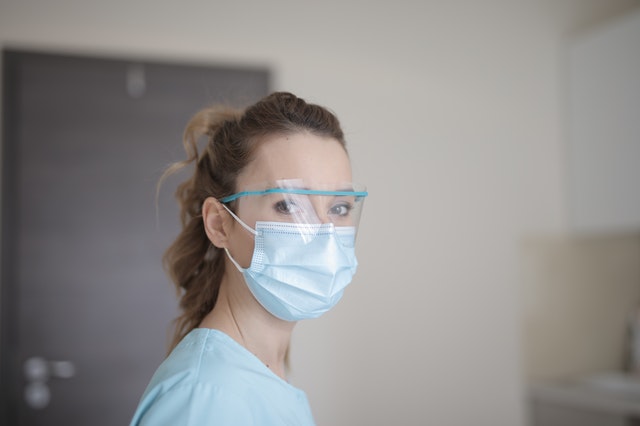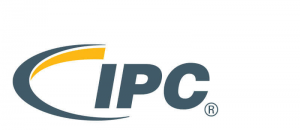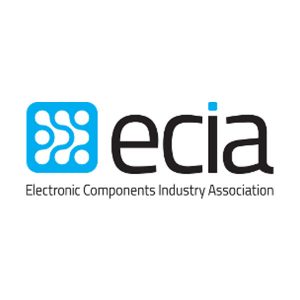Industry Associations Compile Covid-19 Best Practices for Factories and Warehouses

Two industry associations published best practice reports on infection control for workers based on protocols put in place to protect employees from Covid-19. The electronics manufacturing industry, under most government shelter in place orders, is considered an essential industry, requiring workers to continue to report to their workplaces. Employers are implementing infection control measures to protect them.
 The IPC issued this Special Report: Covid-19 and Best Practices for Worker Health Protection in the Electronics Manufacturing Industry. As part of IPC’s ongoing efforts to help member companies cope with the COVID-19 pandemic, the association convened a webinar on April 21, 2020 on the topic of best practices for protecting workers’ health on the job. Three featured experts and more than 165 electronics industry members participated in the 90-minute webinar, and the report summarizes the discussion.
The IPC issued this Special Report: Covid-19 and Best Practices for Worker Health Protection in the Electronics Manufacturing Industry. As part of IPC’s ongoing efforts to help member companies cope with the COVID-19 pandemic, the association convened a webinar on April 21, 2020 on the topic of best practices for protecting workers’ health on the job. Three featured experts and more than 165 electronics industry members participated in the 90-minute webinar, and the report summarizes the discussion.
Throughout the crisis, many IPC member facilities have remained partly or fully operational because they are considered “essential” links in the supply chains for other key sectors including medical equipment, aerospace, national security, and critical infrastructure. The best practices discussed in the webinar reflect what the industry has learned to date, but more lessons will be learned as time goes on.
There is no “one-size-fits-all” solution given the variety of geographic locations, facility sizes, workforce populations, and products manufactured across the industry. Regardless of that variety, all share the goal of continuing to protect worker health and safety.
Our guest speakers on the webinar represented printed circuit board manufacturing, interconnect manufacturing, and electronics manufacturing services (EMS):
- John Schwan, Senior Director of Global Health and Safety of TTM Technologies in Forest Grove,
Oregon - Martha Coopersmith-Gray, Director of Environmental, Health & Safety and Product Stewardship
at Amphenol Information Communications and Commercial Products Group (ICC) in Murray Hill,
New Jersey, and - Bruce Klafter, Vice President of Corporate Social and Environmental Responsibility, with Flex in
San Jose, California.
Common Themes
All three experts described their companies’ efforts to reduce transmission among workers and maintain healthy work environments. Some of the common solutions being employed across the three companies are:
- Routine and standardized screening of worker temperatures;
- Routine and enhanced cleaning practices;
- Physical distancing;
- Required use of surgical masks;
- Implementation of written pandemic response plans and programs; and
- Creation of dedicated response teams comprised of executives, administrators, and experts in health and safety, legal, and human resource issues.
Among other common themes, the experts reported that their workers are generally using surgical masks or personal protective equipment (PPE) that is standard to their work functions. The dedicated response teams are tasked with assessing situations and acting on them quickly. Some of the companies are making their own masks; creating apps for tracking and tracing employees; and even providing on-site haircuts for employees. They all recommend hiring outside experts as needed and working with existing service providers and professionals to gain insights into their areas of expertise.
For example, a company with facilities in multiple jurisdictions may need legal advisers to understand the local requirements in various states or countries. All three experts emphasized the importance of communications up and down the chain of command, and across the value chain.
During the webinar, IPC received more than 50 questions from the participants, and the majority fell into two categories: how to maintain a healthy work environment (e.g., use of masks, need for
enhanced cleaning), and how to reduce transmission (e.g., screening and monitoring). They received several questions about specific types of disinfectants and PPE for which we do not have empirical knowledge to support a response.
ECIA Provides Distributors and Component Manufacturers Guidance on Infection Control
ECIA’s Global Industry Practices Committee (GIPC) has also compiled a comprehensive list of best practices in COVID-19 Infection control to aid companies as they adapt to the unexpected challenges associated with the pandemic. They explained that as the world emerges from the peak of infections, a recovery process will begin, requiring substantial changes across the supply channel. It is anticipated that many of the items in the best practices document may become permanent in day-to-day operations.

ecia
“We have identified best practices that have been implemented in a collective sampling of operations,” said Don Elario, ECIA VP Industry Practices. “For the next steps, the industry needs to be looking down the road to what the new normal will be for daily operations.”
This document was developed by GIPC Subject Matter Experts (SME), who come from ECIA member companies, but also included inputs from non-member companies.
The COVID-19 Infection Best Practices List includes information for gatherings, protocols, cleaning and enforcement, and employee morale.
The complete document is available to members and non-members on ECIA’s Coronavirus Resources page. There are several links to pertinent information for the electronics industry.
Terms of Use: All information, documents and instructions given within this document are to be used at your own risk. ECIA does not approve, endorse, or recommend any of the information contained in this document. ECIA does not verify the accuracy of the information or ownership of the information in this document. By following or using any of this information you waive your right to hold ECIA liable for any damages that are caused or may arise from your use of the information contained in this document.













